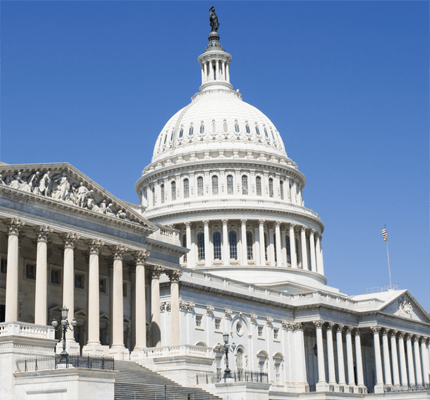
Advocacy in Action
COSSA Launches Headlines Program
NCA partner, the Consortium of Social Science Associations (COSSA), has launched Headlines: a monthly look at what’s new and noteworthy in social science policy. Headlines is a monthly webchat through which COSSA members can “learn about the latest policy and funding developments impacting social science research.” In the first Headlines chat on November 8, experts discussed the midterm election results and what’s next for social science funding and policy. The next round, covering NIH Clinical Trials Policy, will be on December 13. NCA members may request COSSA emails and access to this content here.
Humanities for All: Scholarly Societies Column
(Submitted by the National Humanities Alliance)
As campuses across the country fill with the renewed energy of the fall semester, it is a good time to pause to reflect on how we make the case for the value of the humanities at institutions of higher education. The question is particularly pressing in light of newly-released data from the Pew Research Center that shows that roughly six in ten Americans (61 percent) believe that U.S. higher education is “headed in the wrong direction.” Citing a range of concerns, 73 percent of Republicans and 56 percent of Democrats believe that students are not being prepared to succeed in the workplace.
While the Pew survey was not focused on the humanities specifically, its results highlight the challenges that advocates for the humanities in higher education face today. To combat concerns about preparation for the workforce, we can and should show that studying the humanities cultivates critical skills that have led to success in a wide range of career paths—with strong earnings and high levels of job satisfaction. It is also important to show that the benefits of studying the humanities extend beyond the market—facilitating engaged citizenship and a life well-lived.
At the same time, the Pew survey results point to a more general need to reframe the conversation about the value and direction of higher education; to better articulate that higher education institutions serve not just individual students but also, and increasingly, their surrounding communities. Case-making for the humanities should include rich examples of how publicly oriented humanities projects enrich life in the United States by building and strengthening communities, creating innovative and practical learning experiences for students and people of all ages and backgrounds, and broadening our understanding of ourselves, our nation, and our world.
To highlight the public impact of the humanities in higher education, the National Humanities Alliance (NHA) recently launched Humanities for All, a website that documents the past 10 years of publicly engaged humanities research, teaching, and programming in universities and colleges across the United States. The website presents a cross section of more than 1,400 projects, searchable, sortable, and illustrated with 51 in-depth profiles. When viewed together, these initiatives illustrate the broad impact of the humanities beyond higher education.
Humanities for All seeks not only to broaden narratives about the humanities in higher education, but also to deepen the practice of public engagement in the humanities. We at NHA have a stake in encouraging more of this work, which provides more opportunities for members of the public to have humanities experiences and appreciate the significance of the humanities in higher education. In addition, when integrated into coursework, engaged humanities projects can provide meaningful and practical learning experiences that prepare students for the workforce. To this end, we present these examples as a resource for all who would like to begin or deepen their practice of public engagement.
Examples of engagement abound in communication and rhetoric, all of which can inform our humanities case-making and practice.
In West Chester, Pennsylvania, the DNA Discussion Project uses commercially available DNA ancestry tests to open up conversations about race and identity. Led by Anita Foeman and Bessie Lawton of West Chester University, participants have their DNA analyzed and then come together to discuss the questions their results raise: Were the results what participants expected? What do they mean for participants and their understanding of race, self, and community?
Consider also the Emmett Till Memory Project, led by Dave Tell of the University of Kansas and Patrick Weems of the Emmett Till Memorial Commission. Plaques marking the people, places, and events surrounding the murder of Emmett Till have been vandalized since their installation in 2007, sprayed with bullets, scraped of their words, and even uprooted and thrown in the nearby river. The Emmett Till Memory Project creates digital memorials that cannot be defaced. These digital memorials are currently available through the Field Trip app. Phase 2, which will help users grapple with the perspectives of different historical figures, is in development.
We encourage you to visit Humanities for All to explore engaged humanities projects like these. To help us present the breadth of the field, Humanities for All also welcomes users to contribute new examples of publicly engaged humanities work in the United States via the website’s submissions portal. More broadly, we would appreciate your consideration: How can Humanities for All inform your humanities case-making and practice?
National Academies Establishes Science Communication Committee
The National Academies of Sciences, Engineering, and Medicine (NASEM) has established a standing committee on Advancing Science Communication Research and Practice, which brings together science communication practitioners and researchers. The committee will work to advance the field of science communication around three goals: 1) building a more coherent knowledge base about approaches to communicating science; 2) making it easier for science communication practitioners to access, interpret and use research to inform their practice; and 3) supporting individuals and organizations in communicating science outside the scientific enterprise. Committee members include Communication scholars Dietram Scheufele (University of Wisconsin), John Gastil (The Pennsylvania State University), and Itzhak Yanovitzky (Rutgers University). See the full list of committee members here.

